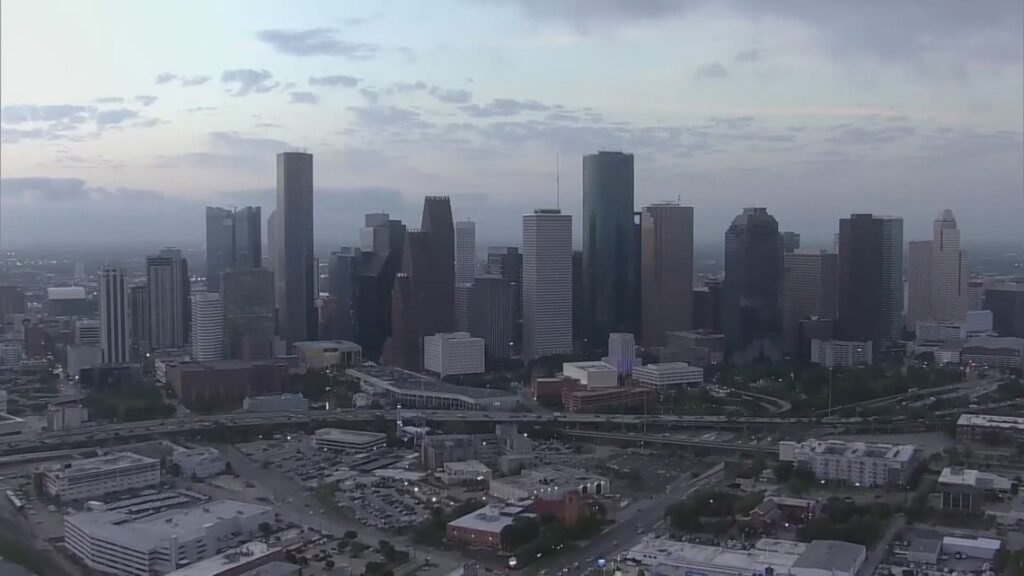In a new report, the City Controller’s office warns the city’s disaster reserves could run dry within weeks if Houston is hit with a major storm.
HOUSTON — Houston now ranks #1 nationwide for hurricane risk, according to FEMA. But a new report from the City Controller’s Office raises a critical concern: Does City Hall have enough emergency savings to keep services running when the next big storm hits?
In a 1 on 1 conversation with City Controller Chris Hollins, the answer is sobering.
“We could be doing a lot more,” said Hollins.
A perfect storm of financial pressure
Houston’s disaster reserves — essentially its emergency savings — are thin enough to keep basic operations going for only a few weeks after a major event. Hollins doesn’t mince words.
“What’s in our coffers is simply not enough,” said Hollins.
Does it make us more vulnerable? KHOU 11 Anchor/Reporter Marcelino Benito asked.
“Absolutely, it’s truly a perfect storm,” Hollins replied.
Houston’s financial strain is fueled by years of running budget deficits, state-imposed limits on raising revenue, and rising fixed costs, with police, fire and debt obligations consuming 75% of the city’s entire budget.
Houston’s alarming track record of disasters
This warning comes as Houston faces an annual onslaught of natural disasters — at least one major event every year for the past decade, including Hurricanes Harvey and Ike, two of the 10 most expensive storms in U.S. history.
“Here in Houston, it’s not a matter of if, but when,” said Hollins.
In previous disasters, federal FEMA support helped Houston recover. But now, Hollins warns that with ongoing federal budget cuts and staff reductions, relying on FEMA is no longer a guarantee.
“We have to look out for ourselves and learn what it means to be self-reliant,” said Hollins. “That means putting more away for these rainy days.”
How Houston compares to other cities
The report highlights a stark contrast between Houston and its peer cities like Dallas, San Antonio and Miami. Houston has the weakest financial cushion, with reserves about half of what experts recommend.
“When we don’t have the money, we can’t spend it, period,” said Hollins.
What’s at risk?
Without a financial buffer, a major storm could mean more than flooding — it could shut down essential city services.
“We’re at risk of neighborhoods not being cleaned up, of trash not being picked up, of 911 not responding when we need help the most,” said Hollins.
Solutions on the table
The City Controller’s Office is now recommending several financial policy changes to strengthen Houston’s disaster preparedness:
-
Raise the city’s minimum reserve requirements
-
Automatically direct year-end surpluses to disaster savings
-
Explore new, sustainable revenue sources
Ultimately, the decision will lie with Houston’s Mayor and City Council.
The Mayor’s Office released this statement:
“Controller Hollins knows better. The City’s disaster planning and recovery are too important and he should not play politics with issues important to Houstonians, especially during Hurricane Season.
Got a news tip or story idea? Email us at newstips@khou.com and include the best way to reach you.
